Board of trustees retains faculty who disagree with CRCNA on LGBTQ+ relationships
Students gathered outside the Prince Conference Center, where the Board of Trustees approved retaining all faculty with confessional difficulties last Friday.
Calvin’s board of trustees decided last Friday to approve the Professional Status Committee (PSC)’s recommendation to retain all faculty in the “pioneer cohort” — a group of faculty who were the first to file statements of confessional difficulty in response to decisions made at Synod in June. The statements were prompted by the Christian Reformed Church in North America (CRCNA)’s decision to elevate its stance on LGBTQ+ relationships to confessional status.
Synod, the CRCNA’s general assembly, voted to affirm that an interpretation of the Heidelberg Catechism used to justify the denomination’s stance against LGBTQ+ relationships had confessional status. For decades, that stance had been considered pastoral guidance, a much less firm designation.
Because Calvin is in a covenantal, ecclesiastical partnership with the denomination, that decision had implications for Calvin faculty, who are required to sign a covenant for faculty members in which they affirm, among other historical church documents, the Heidelberg Catechism. They are also required to pledge to “teach, speak, and write in harmony with the confessions,” according to the faculty handbook. For some faculty, Synod’s decision meant their affirmation of the confessions was now in conflict with their consciences when it came to LGBTQ+ issues.
Chimes granted faculty involved in the process anonymity due to the stakes of the situation and the sensitivity of the issue in the Calvin and broader CRCNA community.
Calvin’s faculty handbook encourages faculty who disagree with the denomination on a confessional issue to file a statement of confessional difficulty with the PSC. At a board of trustees meeting in July, administrators confirmed with the board that they were “all on the same page” about proceeding with the standard confessional difficulty process, according to Provost Noah Toly.
Toly told Chimes that this process has been the biggest part of his job since June.
A group of faculty began meeting during the summer for conversations about how the process might work. Toly guided these conversations. A group of faculty also met off-campus several times to discuss the issue, a faculty member said.
Around the beginning of the school year, a number of faculty decided to submit statements of confessional difficulty, also known as gravamina, to the PSC. About a dozen faculty filed gravamina, according to English and gender studies professor Linda Naranjo-Huebl, who was not among those who signed.
The PSC assesses gravamina and makes recommendations to the board regarding the involved faculty. The Calvin gravamen process for the pioneer cohort concluded at a board of trustees meeting on Oct. 28, in which the board affirmed the PSC’s recommendation to allow the pioneer cohort to continue to serve at the university within a set of expectations based upon Calvin’s existing policies on human sexuality and academic freedom. Those expectations apply to all faculty members, not just those who have gone through the gravamen process, Toly said.
“While we understand that not every member of the Calvin community will agree with every position or decision the University makes, our desire is that this be a place where even our disagreements are characterized by respect and love for one another,” Toly told faculty and staff in an Oct. 28 email. “I am hopeful that this process and outcome can serve as a model for our students and other observers as we continue to wrestle with important issues.”
According to Toly, the board found the PSC’s recommendations to be “respectful of the university’s covenantal partnership with the CRCNA, consistent with confessional commitment, congruent with existing policies and procedures, supportive of academic freedom and reflective of constructive engagement.”
To file or not to file
Naranjo-Huebl told Chimes her scholarship and personal convictions are “directly at odds” with Synod’s interpretation of the confessions as they apply to LGBTQ+ relationships. Naranjo-Huebl signed the denomination’s Covenant for Office Bearers 20 years ago, when LGBTQ+ relationships were not a confessional issue, so she believes leadership will need to take the initiative in redefining policy and issuing guidelines. She chose not to join the initial cohort of faculty signing a gravamen.
“Because I disagree that Synod has the authority to interpret the seventh commandment the way they have, I don’t intend to file a gravamen at this time,” Naranjo-Huebl said. “If guidelines and instructions are issued to faculty requiring one, I will obviously need to reconsider.”
Nevertheless, Naranjo-Huebl said she respected her colleagues’ decision to file gravamina.
Another faculty member who opted not to file a gravamen did so for similar reasons. Although they expect to need to file one at some point in the future, they worried that doing so would not go far enough toward making LGBTQ+ students feel welcome and valued at Calvin.
Sociology professor Elisha Marr told Chimes she chose not to join the pioneer cohort because “being part of the sociology and social work department, it has been an emotionally challenging year. And I definitely needed a break from the ups and downs.” The department lost three full-time faculty over the last year.
Psychology professor Emily Helder, who did file a gravamen, said she was not necessarily convinced doing so was the best strategy but felt it was the only one presented by the administration.
Several faculty members in the pioneer cohort told Chimes they felt they would be good candidates to test the waters because they were in stages of their careers in which it would be feasible to quickly find employment elsewhere.
Faculty members involved also said they were interested in trying to help the university craft good policy through this process and communicate their theological stances.
The board delivered a set of expectations for scholarship, teaching and personal conduct to involved faculty. These expectations — a distillation of existing guidance found in the faculty handbook, covenant for faculty, “Confessional Commitment and Academic Freedom” and “Homosexuality in the Calvin Community” documents — will be available to all faculty within a couple of weeks, according to Toly. Although the board had the power to tweak PSC’s recommendations for these expectations, they did not do so, according to Toly.
According to Toly’s Oct. 28 email, faculty could expect invitations to informational meetings to learn more about the board’s decision soon. “At that point, we will also share any additional recommendations emerging from the board meetings and will answer your questions about what happens next,” Toly wrote.
A faculty member who did not file a gravamen with the pioneer cohort told Chimes they are working on one now that they have seen the process play out.
Watching and waiting
It has been a long semester for faculty in the pioneer cohort and those watching with interest, as well as for some students, who have wondered if all of their professors would be able to remain at Calvin.
A group of about 10 students gathered outside the Prince Conference Center, where the board was meeting, during chapel break on Oct. 28. Students held pride flags and handed out physical copies of a petition to board members who were heading to and from the center.
The petition called for the board to retain faculty and protect academic freedom at Calvin, all while considering impacts on LGBTQ+ students.
Student organizer Ellen Jones said the board responded “really positively.”
“A lot of them have been wanting to engage and reach out and learn more. A lot of them have shown support for this and encouraged me,” Jones said.
Sophomore civil and environmental engineering student MJ Van Antwerp told Chimes prior to the board’s decision they did not expect the outcome for which they were hoping. “Frankly, I am not hopeful about anything that happens at Calvin or within the CRC. I would like to be, but so far, I’ve seen a lot of people come and say nice things and not do nice things,” Van Antwerp said. “And so I’m more than willing to believe that good things could happen, but I need to see it before I believe it.”
While faculty told Chimes they were confident the board would decide to retain the involved faculty, they said expectations for faculty who remained could have a more complicated impact.
Expectations
One faculty member who filed a gravamen said prior to the board’s decision that they were looking forward to getting some clarity about how best to remain in alignment with the CRCNA and expectations for faculty members while dissenting on LGBTQ+ issues. They said they were interested to see how the guidelines for faculty would parse tensions between academic freedom and fidelity to the denomination.
While they were looking forward to having answers, faculty members involved said they expected the expectations to be broadly open to interpretation. How the expectations are interpreted could determine whether some faculty remain at Calvin.
Helder, who has seen the expectations, told Chimes she felt the guidelines for teaching seemed clear and specific and believed they had taken faculty insight into account well. Helder is less optimistic, however, about the guidelines on public scholarship and personal life.
“I’ve been telling them for a long time that they need to be specific about public scholarship and what counted as personal life,” Helder said. “I didn’t see that in the guidelines.”
Toly told Chimes the processes outlined in Calvin’s existing documents will guide future interpretation of the expectations. Faculty who plan to teach, publish, post or act in their professional or personal lives in a way that could be perceived as controversial on LGBTQ+ issues will be required to consult with their dean, the provost or the president, according to Toly.
When exactly a consultation needs to be initiated is ambiguous. Helder offered the example of sitting on a panel. “You don’t always know every question you’re going to be asked,” she said. “I want to be a good-faith partner and consult, but what about those situations where the guidelines would kind of break down, because I would get asked something that I didn’t consult about, through no fault of my own?”
“Our documents make it really clear that there are things that are professional and there are things that are personal,” Toly said. “But at the same time, you are never not a Calvin employee.”
Helder said she feels she does not have enough trust in university administration at the moment to be confident that her academic freedom will be protected going forward. “I look at [the guidelines] and think, ‘[The administration] need[s] to spell this out more, because I don’t trust that we’re on the same page about what would be across the line,’” she said.
This story has been edited from its original version to clarify statements made by a professor.



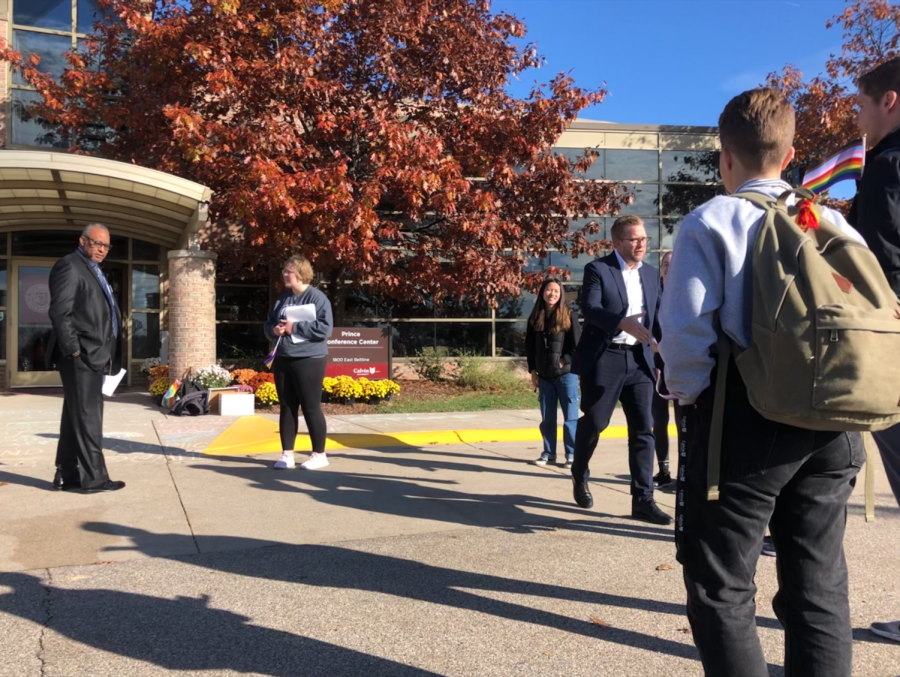
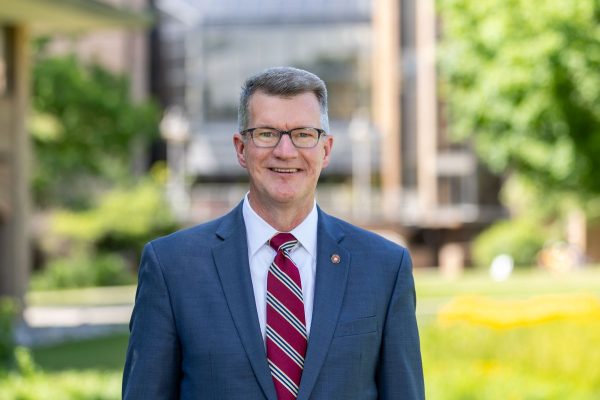
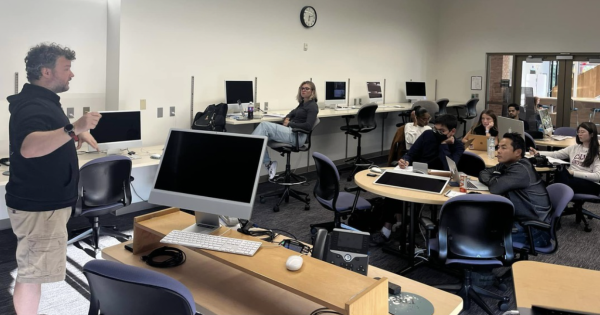

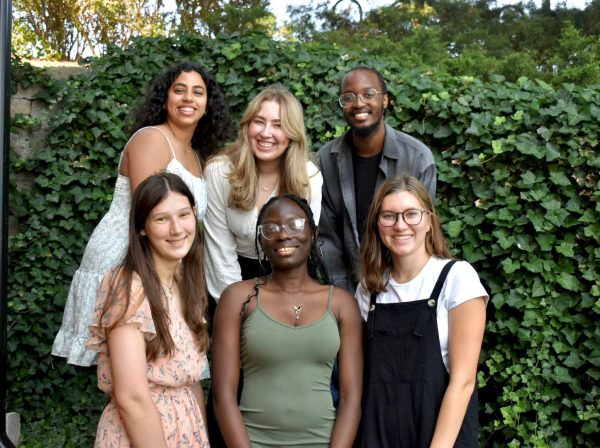
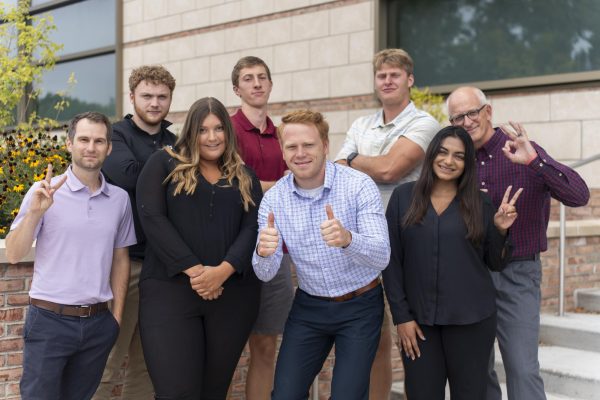
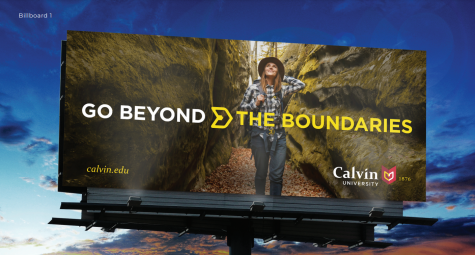
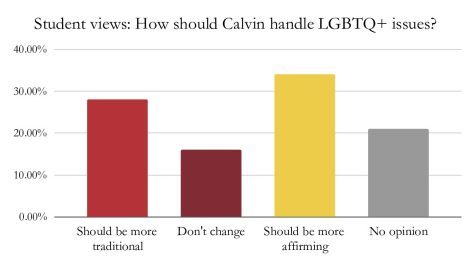
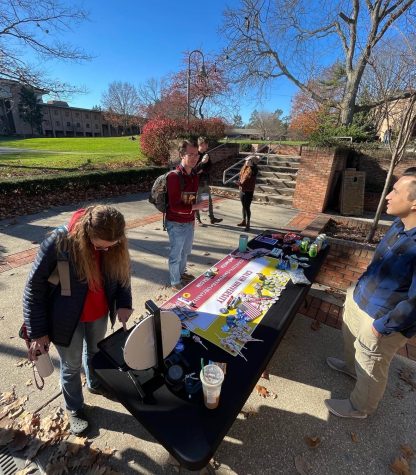
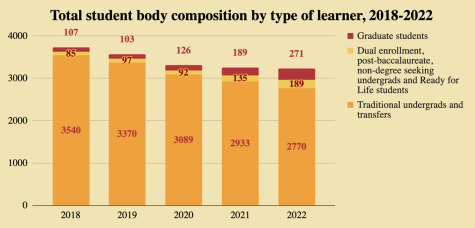
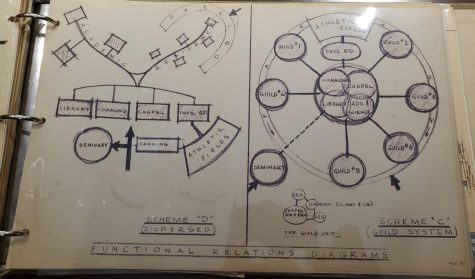
Lord Cavendish • Nov 4, 2022 at 3:36 pm
If you don’t have a degree of common sense when reading the bible, or attending a very conservative church, you damn yourself.
If the bible is alive, then it must adapt to better understandings, tempered by reason and science…that is what Calvin should be about. And the CRC should be leading on social change, not retrenching itself, always 40 years behind what reasonable people understand as a more complete understanding of life.
Act like an academically free University, not a Jerry-Farwell church school.
Faith • Nov 6, 2022 at 5:37 am
No. God does not submit to your modern-day interpretations. You must submit to the word! This school caved and allowed leavened bread. They should have cut their losses and let them go!
Tom Eggebeen • Nov 2, 2022 at 11:28 am
Proud of my school … (1966 grad) … keep up the good work … defy the nonsense and affirm the gospel – LGBTQ+ rights are the definitive line on grace AND democracy – and both are at stake these sad days.
Stewart de Jong • Nov 2, 2022 at 8:22 am
I don’t understand how people can seek to separate their private and public lives as a Christian. First and foremost, we live before God and should be seeking to live under his authority. Academic freedom seems to be the authority that many have chosen instead of God’s word which we as Christians are called to submit to. It is surprising that many once signed the covenant of office bearers in the belief that same sex union is biblically allowable. The acts of synod in ’22 did not change the catechism. The church has taught according to scripture for centuries that same sex sex in any setting is still sinful. We have the responsibility as Christians to call one another to humility and discipline, and seek that discipline humbly from one another as a sign of love from God and one another. – Hebrews 12:5-11
Kathy DeMey • Nov 1, 2022 at 5:08 pm
Along with Emily Helder, I don’t see or understand what the guidelines say about distinguishing between public scholarship and one’s personal life. Although I’m not teaching in the classroom, I do have a teaching role as a librarian. So, it’s important to have this clarified. I want to thank Emily Helder for expressing what many of us feel.